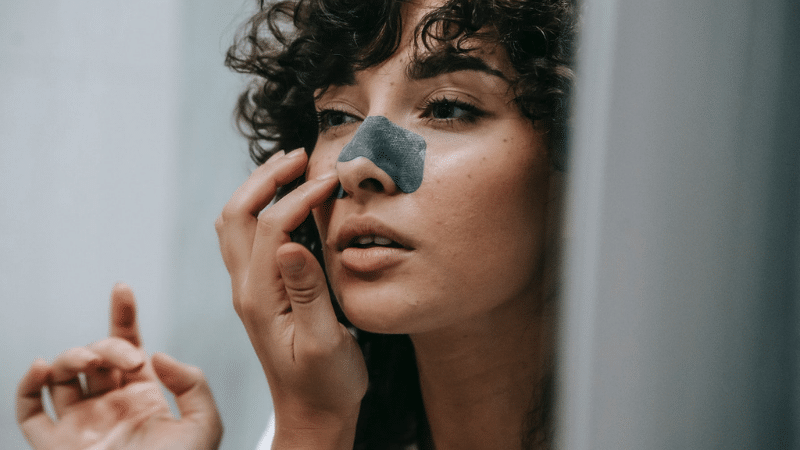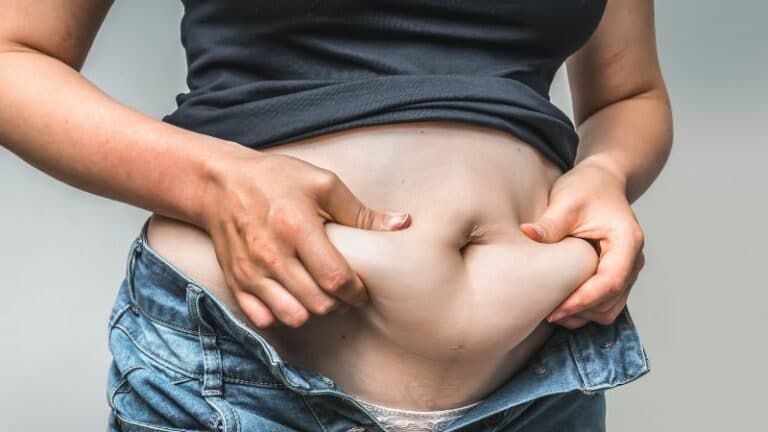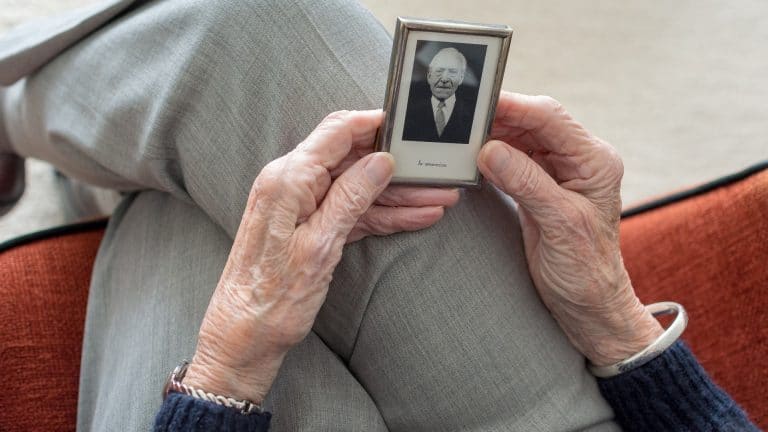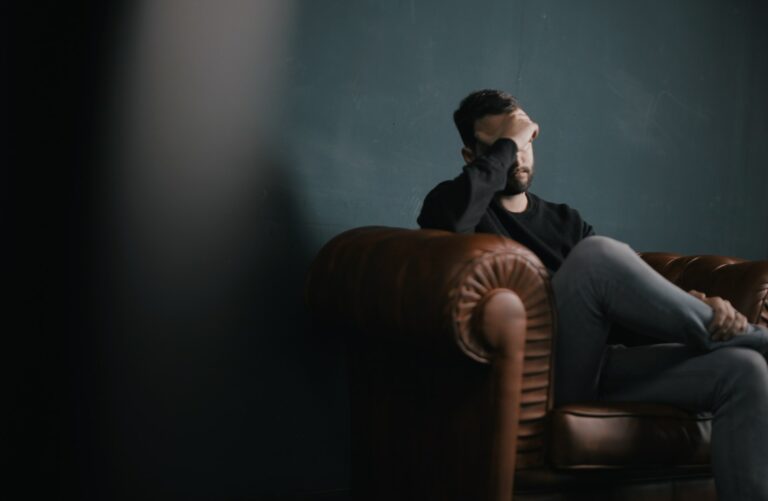How to Get Rid of Blackheads in 2024 (Detailed Guide)

Blackheads are a mild form of acne, typically dark or black in appearance. They’re a type of non-inflammatory acne, which is more widespread than inflammatory acne due to the ease with which it can break out. Our recommendations on how to get rid of blackheads attempt to cover all the known solutions—both preventive and curative methods—and how each works to protect you from blackheads.
Treatment Methods for Blackheads
Due to the absence of bacterial infection, blackheads are considered a mild form of acne—in fact, the least severe of all acne types. They don’t require a specialist in most cases. Treating blackheads usually involves applying chemicals that soften the content of clogged pores, making them easier to wash out.
Other treatment procedures involve washing off any accumulated dirt, oil, and dead skin cells from the skin surface. You’ll find different products that work in the ways described above, albeit with varying concentrations and combinations of the required ingredients. DIY treatments usually involve two or more product combinations, with one softening and the other helping to wash off unwanted elements on the skin.
Characteristics of Blackheads
Before we go into more detail regarding how to get rid of blackheads at home, we should first tell you how to identify them and help you learn more about their nature. Such understanding, coupled with a knowledge of how each remedy works, will help you find the right products to use.
They Don’t Spread Infection
Blackheads are usually uninfected and don’t cause most of the discomforts of acne except for rough skin surface and possible scars. Since they don’t spread, blackheads are less likely to cause serious issues when you pop them. However, it’s still not advisable to pop blackheads due to the risk of bruising the skin or causing permanent scars.
They Have an Open Head
The pores can stay open if the bacteria doesn’t penetrate the follicle. Many people want to know how to get rid of blackheads overnight, thinking their open heads translate to super-fast treatment. However, patience and perseverance are important because treatment can take months.
They’re Usually Small in Size
The usually small size of blackheads is a result of the absence of bacteria—namely, bacteria would multiply and grow in number, expanding the space the blackhead occupies.
They Occur on the Skin’s Surface
Blackheads are close to the surface because they’re made of sebum and dead skin cells that can only accumulate but not multiply. When you try to pop them and fail—especially blackheads on the nose—these substances can penetrate the skin deeper from the external pressure you applied.
Causes of Blackheads
Our genetics, activities, habits, and physical environment are the deciding factors in acne breakouts. We’ll cover a wide range of causes to simplify your effort of preventing, managing, and treating acne. Combating blackheads starts with avoiding anything that might trigger the condition. So, categorizing the causes of blackheads makes it easier to figure out how to get rid of blackheads on the face and other body parts.
There are many causes of blackheads, but these can be categorized into two types, namely: internal and external. The difference is that internal causes require professional medical action to control, while correct moderation in our lifestyle and hygiene can control external causes.
Internal Causes
There are three internal causes of blackheads: genes, hormones, and certain underlying conditions in women.
Genetics
Research shows that genetics can be the major trigger for blackheads. Certain genes can influence the structure of sebaceous glands, making them more vulnerable to blackheads and other types of acne. The structure of sebaceous glands influences their size, immunity, and sebum production. Excess sebum is an immediate cause of blackheads.
Hormones
Controlling hormones is one of the best recommendations on how to remove blackheads permanently. It’s essential to balance reproductive hormones, estrogen, and testosterone to prevent excess sebum production. Notably, testosterone levels can affect skin cell activity and sebum production, explaining why acne is more common among teens.
Hormone imbalance in adults can also cause blackheads. Adults who are more likely to experience breakouts include pregnant women, women approaching the end of their monthly cycle, and women who take contraceptives. This is hardly surprising since these conditions cause an imbalance in sex hormones.
Polycystic Ovary Syndrome (PCOS)
PCOS is the collective name for three health conditions affecting a woman’s reproductive system. Each of these conditions can trigger blackhead acne in women. The three conditions include:
- irregular periods
- excess androgen
- polycystic ovaries
External Causes
These factors stem from our actions and environment. The fact that they’re external means that we can usually control them or minimize our exposure to them. Below is a brief list of these factors.
Stress
People looking into how to get rid of blackheads on the nose and other body parts at home will often mention that managing stress is critical. Stress hormones can trigger an outbreak, slow down healing, or exacerbate the condition. More particularly, a surplus of stress hormones causes an imbalance in sex hormones, leading to excess sebum production.
Medication
Certain medications can also trigger acne. If you take drugs that contain certain ingredients, you might be increasing the risk of a breakout. These ingredients include but aren’t limited to:
- iodides
- bromides
- DHEA
- androgenic steroids
- corticosteroids
- lithium
- anticonvulsants
- barbiturates
Not all drug-related breakouts are acne. In fact, acne caused by medication is rare and looks uniform in shape and size, as opposed to other cases where you have a mixture of blackheads, whiteheads, etc., all within the same area.
Lifestyle and Physical Activities
When discussing how to get rid of blackheads on the forehead and other body parts, lifestyle changes are always one of the top recommendations. A good percentage of blackhead breakouts stem from our lifestyle, including clothing choices, diet, and hygiene.
Tight-fitting clothing contributes to friction against our skin, trapping dirt, sweat, dead skin cells, and even sebum. With no escape for these particles, some get into the hair follicles and clog them. This isn’t limited to clothing; anything that straps to your skin can cause acne, including chin straps, backpacks, headbands, etc.
Diet
Your diet can also contribute to breakouts. Foods high in glycemic index (GI) are active contributors to acne. In other words, consuming too many carbs or eating excessively due to stress can trigger blackheads.
Hygiene
Poor hygiene is perhaps the biggest cause of blackheads after hormones. This ranges from not bathing regularly to allowing dried sweat to remain too long on the skin and wearing dirty or sweaty clothes. All of this exposes your skin to dirt and increases the likelihood of clogged pores. Sometimes, bathing isn’t enough to clean the skin properly. You need to exfoliate from time to time. For instance, glycolic acid for blackheads is an excellent exfoliating solution.
How to Get Rid of Blackheads
Thankfully, there are many ways to treat blackheads, and most are DIY. You must understand that treating blackheads requires diligence, patience, and the right products. Of course, the right product for blackheads may not necessarily be right for your skin in terms of effectiveness, side effects, and convenience.
Medicinal Products for Blackheads
Therapies are readily available in your local stores or online. OTC remedies, for example, are very effective in clearing blackheads. However, you need to stick to any medication for at least three months before looking for an alternative, provided it doesn’t trigger any allergic reactions.
Ingredients like salicylic and glycolic acids are most commonly used for treating mild acne like blackheads. They are both excellent exfoliants for different skin types. While it’s not uncommon to find people touting the advantages of natural remedies, like potent green tea extract or the like, OTC medications have been shown to be more effective.
Glycolic Acid
Glycolic acid is water-soluble and good for people with dry or sunburned skin. Its water solubility helps clear the skin of dead cells. It’s the best solution for people who already have acne scars as it will lighten them and improve the skin tone (you can also use high-quality vitamin C serums for this). Glycolic acid also reduces pore openings, which minimizes clogging. Moreover, products containing this acid keep the skin moist.
Salicylic Acid for Blackheads
Salicylic acid is a popular ingredient in many OTC medications for blackheads. These products usually contain from just above 0% to 5% of the acid. This acid is particularly effective against blackheads because it penetrates the clogged pores and breaks up the mass of sebum and dead skin cells. It also helps by killing bacteria and minimizing the risk of your blackheads progressing into more serious cases.
Additionally, salicylic acid helps maintain skin moisture. You’ll find it in body wash products and cleansers. However, since salicylic acid reduces the amount of oil on your skin, it’s not good for people with dry skin.
When using a salicylic acid product for the first time, be very cautious as it can be harsh on some types of skin, especially with daily use. You can manage a blackhead on the back with sprays containing these acids. Finally, since they don’t contain any bacteria, cleaning out blackheads with antibacterial remedies is not necessary.
Personal Hygiene
Personal hygiene is important in preventing blackheads, and its neglect is one of the dominant blackhead triggers in most people. Ensure to wash your clothes, undies, and bed sheets regularly, and always wash clothes you’ve been sweating in before wearing them. Take your bath after every excessive sweating, and don’t allow dry sweat to stay for too long on your body.
Exfoliating
Exfoliation simply means getting rid of dead skin cells from the body through manual or chemical exfoliants. Use manual exfoliants carefully because they may cause more harm than good by irritating the skin. On the other hand, chemical exfoliants are more effective, and they penetrate the skin deeper, quickly weakening the bond between dead skin cells and skin.
Conclusion
Getting rid of blackheads can be challenging, depending on a number of factors, internal or external. Figuring out the cause of your acne is the first step to finding a workable solution. Blackheads are easier to treat than most other acne due to their open head and the absence of infection. However, treatment requires patience, persistence, and the right mix of products. If your skin proves too sensitive, a dermatologist or doctor is your best option.
FAQs
What kills blackheads fast?
A combination of salicylic and glycolic acids is the fastest treatment for blackheads as their action is quick, deep, and thorough. Salicylic acid dissolves the sebum in the clogged pores, while glycolic acid weakens the bonds that dirt and dead cells have with the skin. This makes it easier to wash off the dead cells while preventing any buildup that might clog pores.
How do I permanently get rid of blackheads on my nose?
When trying to figure out how to remove blackheads on the nose, you should start by determining what’s causing them. If it’s an internal cause, the only option would be to treat the underlying condition before applying any external remedies. If the cause is external, you must identify it and keep away from it.
Once you know what’s causing the blackheads on your nose, you should try to address the cause and apply any DIY remedies described in this article. Of course, you can also simply visit a dermatologist for quick results.
Is it good to squeeze out blackheads?
No, it isn’t. Although they’re a type of non-inflammatory acne, squeezing blackheads can bruise the skin and expose it to bacterial infection. You might also cause scarring if you fail to remove the blackhead after squeezing.
What helps with blackheads?
In addition to using OTC medications containing glycolic and salicylic acid, you should avoid all blackhead triggers. In other words, if you’ve been wondering how to get rid of blackheads, the answer includes practicing proper hygiene and avoiding stressful events, air pollution, and too much exposure to sunlight.






